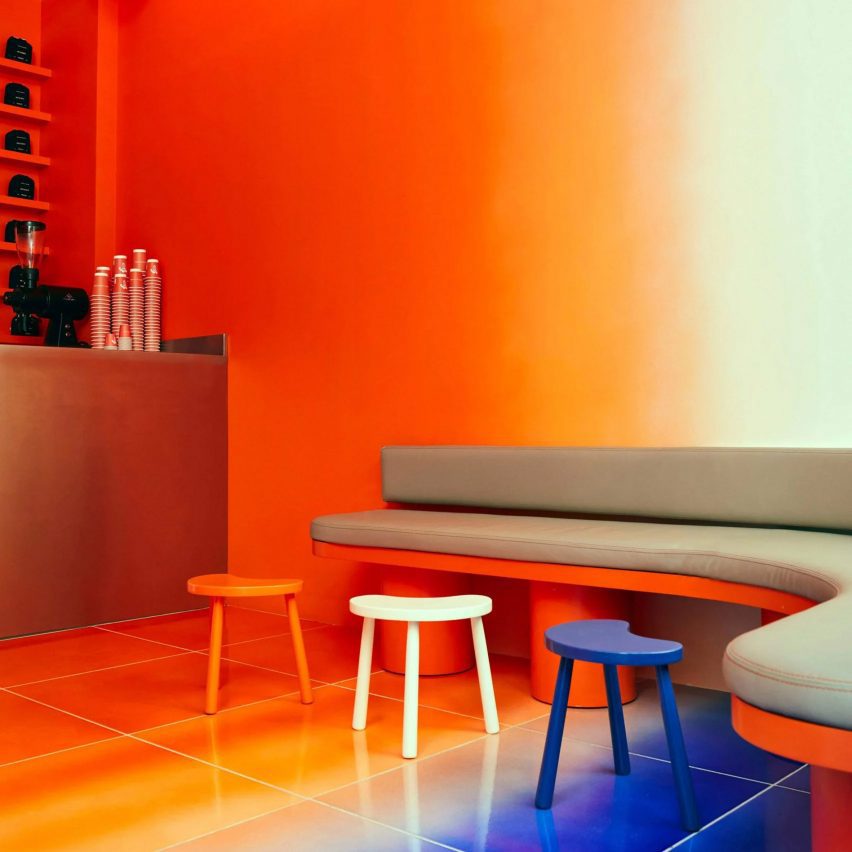
Interior design in 2024 will have a focus on individualism and see a backlash to the rise in AI design while colours will be informed by global warming, interior designers across the globe told Dezeen.
While the trend for locally sourced materials and sustainable biomaterials looks set to become more pronounced, designers also believe that interiors will move away from the earthy hues and soft shapes seen during the pandemic years.
However, the maximalist trend predicted by many to take off in 2023 appears to have given way to a more individualist take on interiors, with a focus on simplicity recalling the designs of US fashion pioneer Halston.
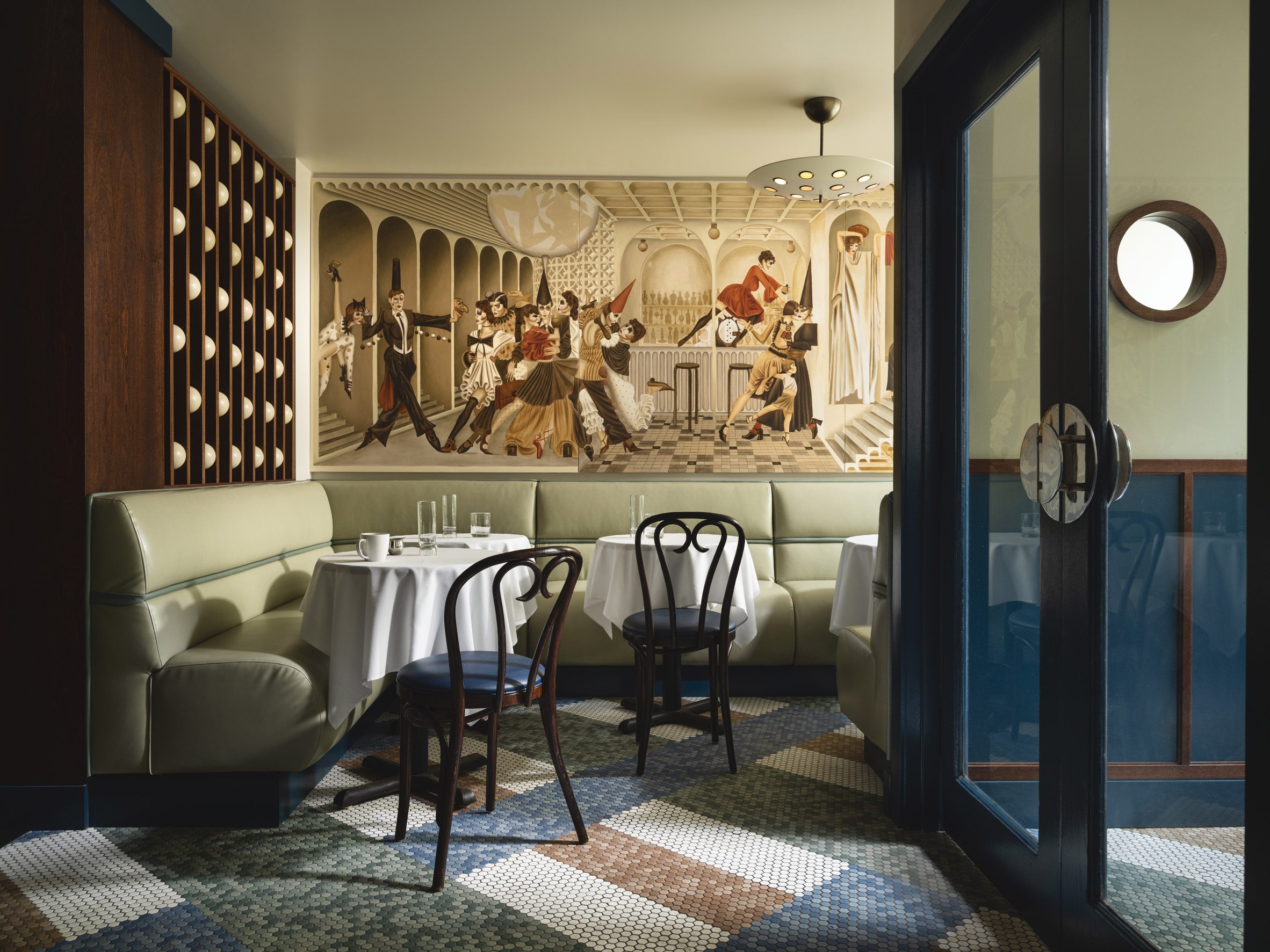
“I’m seeing a growing interest in post-industrial aesthetic and quiet refinement,” said Becky Carter, founder of the eponymous US studio.
“Maximalism now seems out of touch,” she added. “Even the womb-like softness of the 1970s inspiration we’ve seen so much of is starting to feel heavy and overdone.”
“There’s a refreshing air to Halston-esque modernity: simple, unfussy materials, elegantly arranged, detailed, but without excess.”
“We foresee a shift in direction”
Yohei Terui and Hiromu Yuyama from Japanese studio I IN also believe we will see a move away from earthy hues in interiors.
“Over the past couple of years, the theme has revolved around earthy colour and simplicity through the use of natural materials,” the duo told Dezeen.
“However, we foresee a shift in direction, trending towards a more ‘decorative’ approach, in contrast to the previous style,” they added.
“We believe that this shift is driven by the prevailing desire of self-expression and individuality in today’s culture.”
New Delhi-based interior designer Iram Sultan echoed the preference for more individual designs, saying we will see: “Emotional design, personalized spaces, a fresh approach towards materials, finishes and textures, and interiors that are easy, warm, comfortable and sustainable.”
Interiors to focus on “real places” rather than AI-generated designs
The rise in artificial intelligence (AI) in 2022 and 2023 was also on people’s minds, with several designers mentioning a backlash against digital designs.
“Memorable and customised spaces that are not Pinterest- and AI-generated will be preferable, as the race against interior design and AI technology grows,” said UK-based designer Tola Ojuolape.
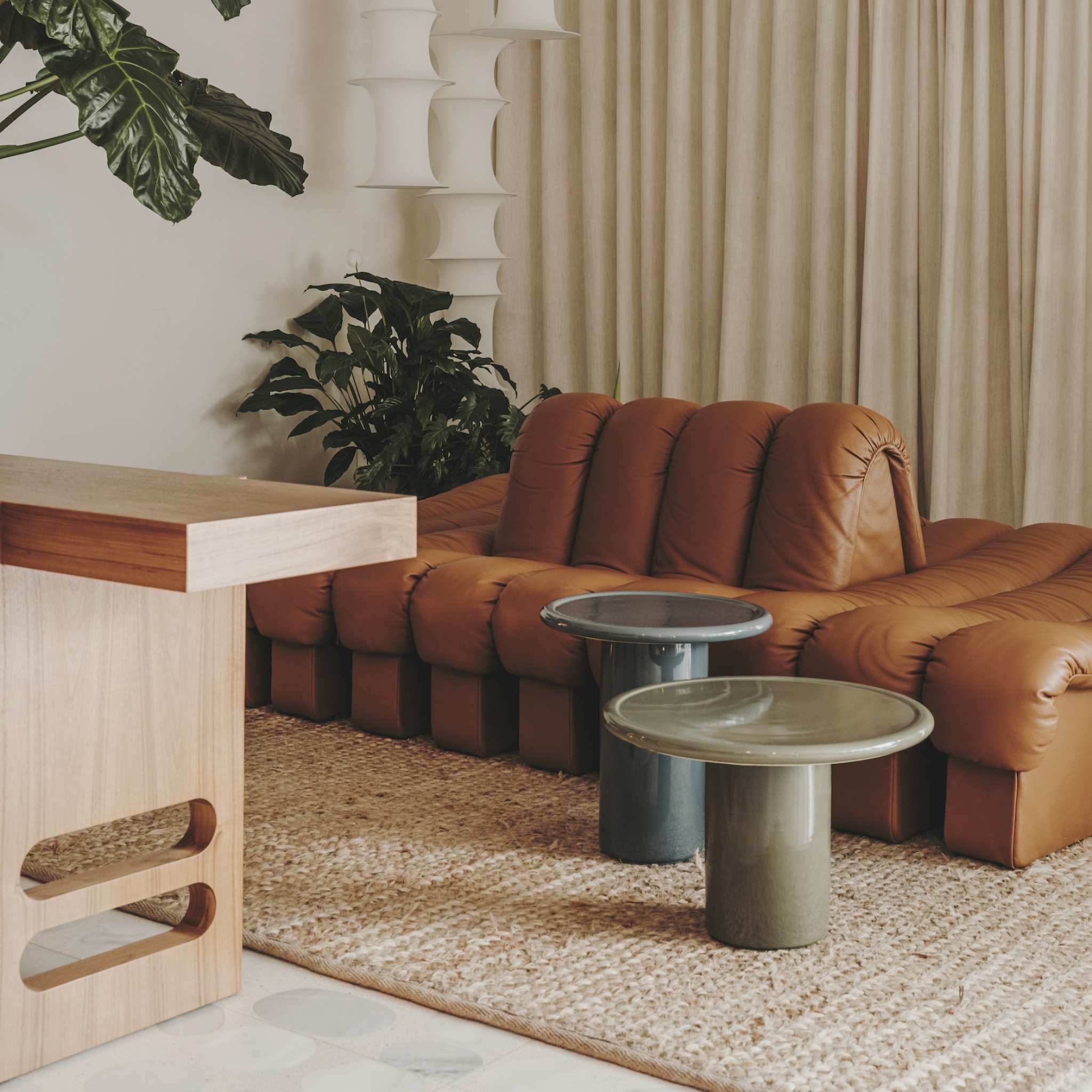
In 2024, interior design will be more about creating tangible spaces, according to London-based Oskar Kohnen Studio.
“We want to see less digital dream houses of pandemic years, and go back to real places,” studio founder Oskar Kohnen said. “Forward-thinking conceptual interiors that create long-term value rather than effects.”
Julien Sebban of French studio Uchronia agreed, saying: “The biggest trend will be very textured materials, cosy and comforting such as shearling or thick wool. As people need an antidote to digital they need to feel the physical world.”
2024 may see “resurgence of the arts and crafts style”
When it comes to material trends for 2024, designers are choosing to work with natural and local materials.
“For me, natural materials with a strong connection to their placement have a profound bond with today’s design,” said Pedro Ramírez de Aguilar, co-founder of Mexican studio RA!
“I believe materials such as wood and natural plasters play a crucial role in creating a sense of grounding.”
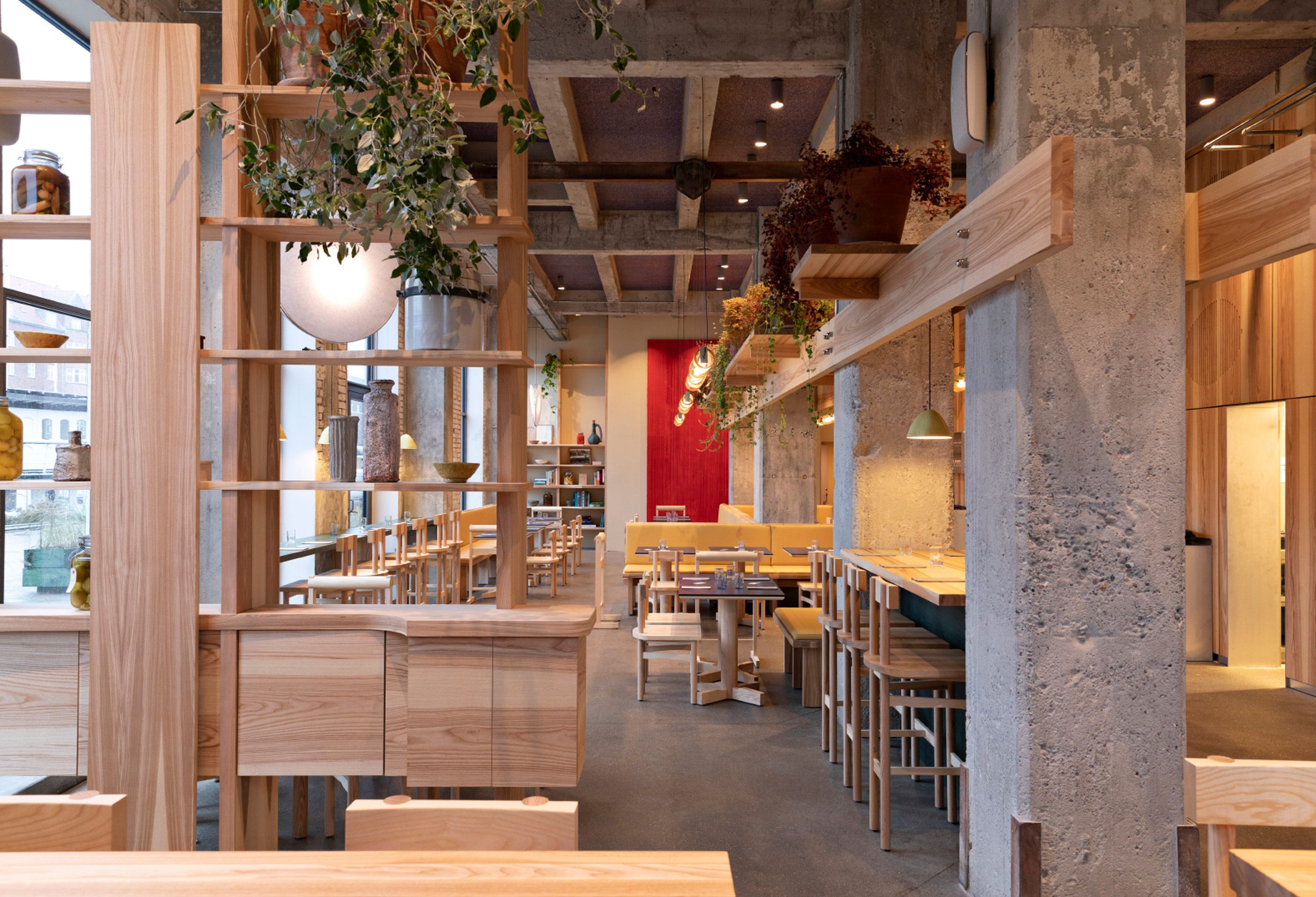
Danish studio Spacon & X partner Malene Hvidt argued that the materials used also affect the colours chosen for interiors, saying: “We also try to use colours that emphasise the natural appearance of the material itself, such as treating wood with tinted linseed to preserve the pattern of the grain.”
This sentiment was echoed by Tim Greer, director at Australian studio TZG. “I’m hoping that we will see more natural materials with fewer complex and unsustainable finishes,” he said.
“I think the drive towards sustainability will see the use of more natural materials and a resurgence of the arts and crafts style,” Sultan added.
“There is a genuine return to solid bold colours”
The colours of our interiors next year will range from pale fresh hues, such as pistachio, to stronger shades.
“Palette-wise, I feel there is a genuine return to solid bold colours – be it a punch of emerald green, mustard yellow or Yves Klein-blue to provoke the visual energy. The expression of materiality and tactility is also a key focus for my studio this coming year,” said Hong Kong designer André Fu.
“Customers are thriving for experiences to express their own personality and values – this has led to a greater awareness for the role design plays in the realms of hospitality.”
“I’m loving seeing light, lemon-lime yellow being utilized. I also think pistachio has yet to peak,” said Carter, while Ojuolape believes in “rich, pigmented and plaster colours”.
“The colour and material trends will be very warm colours and more specifically orange as we need joy and to warm things up,” said Sebban. “With global warming more important than ever, that will be the colour we get used to.”
“Embrace a bold departure from the ordinary as the world adopts warm, earthy tones inspired by landscapes and eclectic hues drawn from various cultural expressions, all crafted with sustainably sourced materials,” added Nigeria-based designer Titi Ogufere.
Biophilia will continue to “be a staple”
The designers Dezeen spoke to all said they were taking the subject of sustainability seriously. There is a need to create “lasting design,” said US-based designer Giancarlo Valle.
“Sustainability cannot be separated from the world of building,” he argued. “The most sustainable thing one can do as a designer is to create something that someone will not want to take down after a short period of time.”
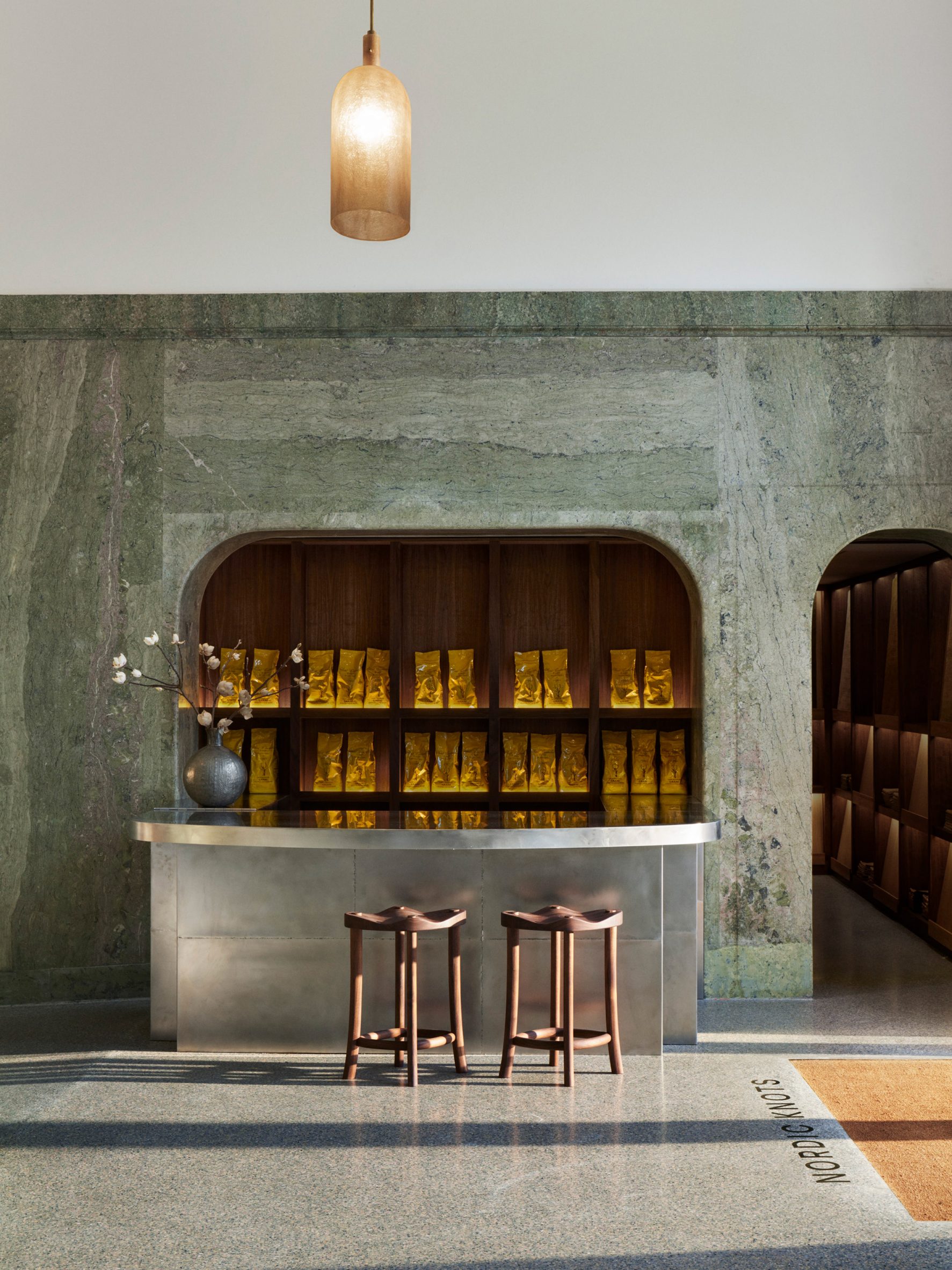
Spacon & X’s Hvidt added that customers are also increasingly demanding when it comes to sustainability.
“Sustainability is fast becoming a key consideration when it comes to interior design,” she said.
“Studios such as ours are always looking for new ways to become increasingly responsible – this is also what clients are expecting as we collectively become more aware of our impact on the planet, especially for future generations.”
This focus is seen in the use of plants and trees indoors as well as outdoors to create biophilic designs – interiors that are more connected to the natural environment.
“Biophilia will continue to be a staple in the design aesthetic as well as beautiful, natural and healthy surface finishes,” said Ojuolape.
“The biophilic movement will remain strong,” agreed Sultan.
“In the future, ‘high-end’ may mean local artisan work”
Ogufere added that sustainable design will draw on local communities.
“Sustainability takes a global stage, with collaborative projects empowering local communities and embracing circular design principles, reflecting a collective commitment to environmentally conscious practices worldwide,” she said.
“Personally, I believe that sustainability is about building with a local hand, using local materials to create a profound sense of community and reduce carbon emissions,” agreed RA!’s Ramírez de Aguilar.
“Architects are becoming more aware of their immediate context and are losing the fear of only using ‘high-end materials.’ In the near future, ‘high-end’ may mean local artisan work.”
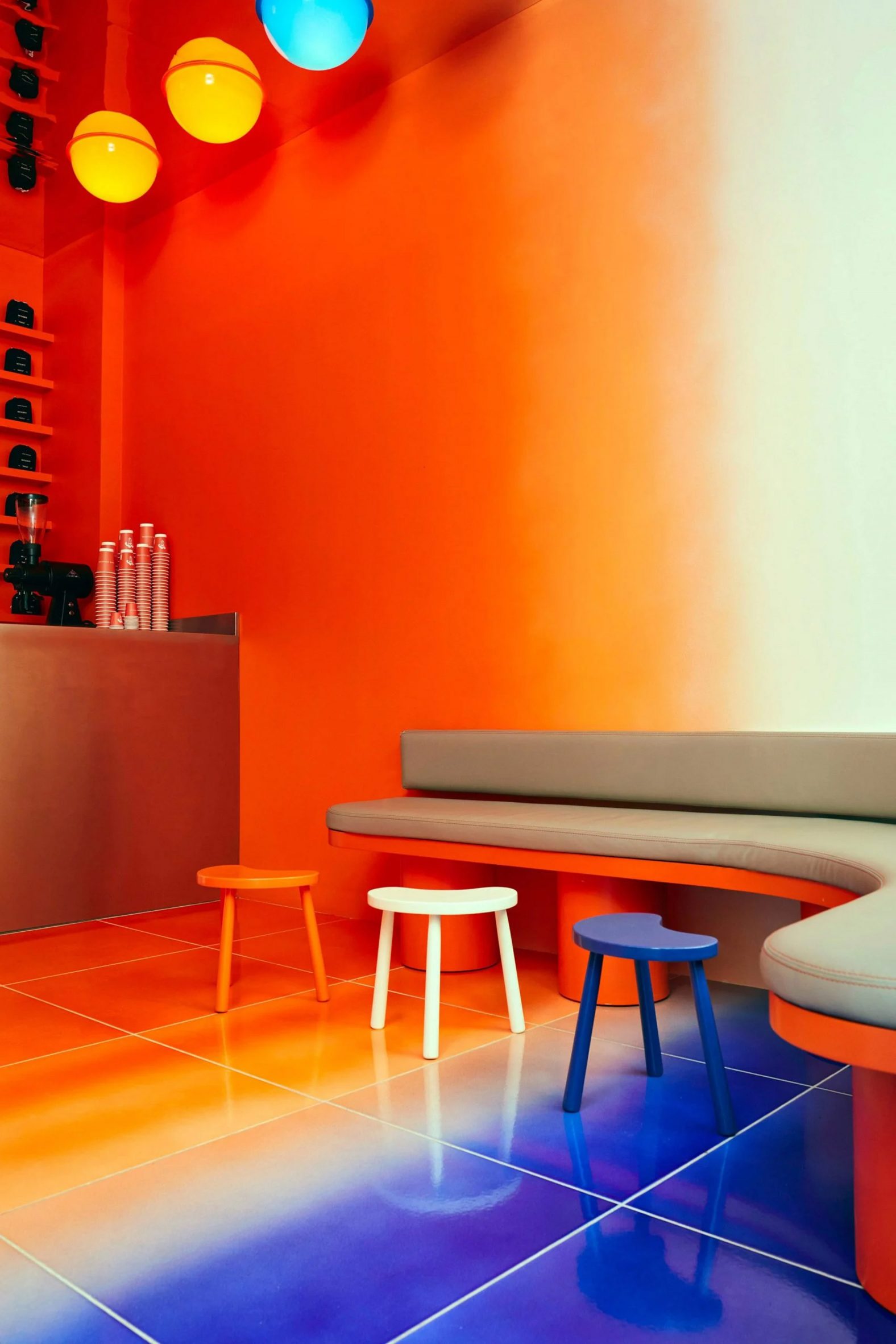
Finally, designers were also planning to include technology in their interiors next year.
“Technology will be used to enhance the quality of living,” said Sultan.
Terui and Yayama from I IN, who see textiles as a strong trend next year, said: “Collaboration between the interior design and fashion industries can contribute to the development of new technology which in turn allows innovative spaces to be created.”
Fu believes this can also help make projects more sustainable, saying: “I think considerations for sustainability is an integral aspect of my design approach, it’s all an organic and subconscious act – from the selection of materials to the integration of technology into the design without undermining the overall experience in mind.”
Dezeen In Depth
If you enjoy reading Dezeen’s interviews, opinions and features, subscribe to Dezeen In Depth. Sent on the last Friday of each month, this newsletter provides a single place to read about the design and architecture stories behind the headlines.
The post Maximalism to make way for "quiet refinement" in 2024 say interior designers appeared first on Dezeen.
www.dezeen.com










